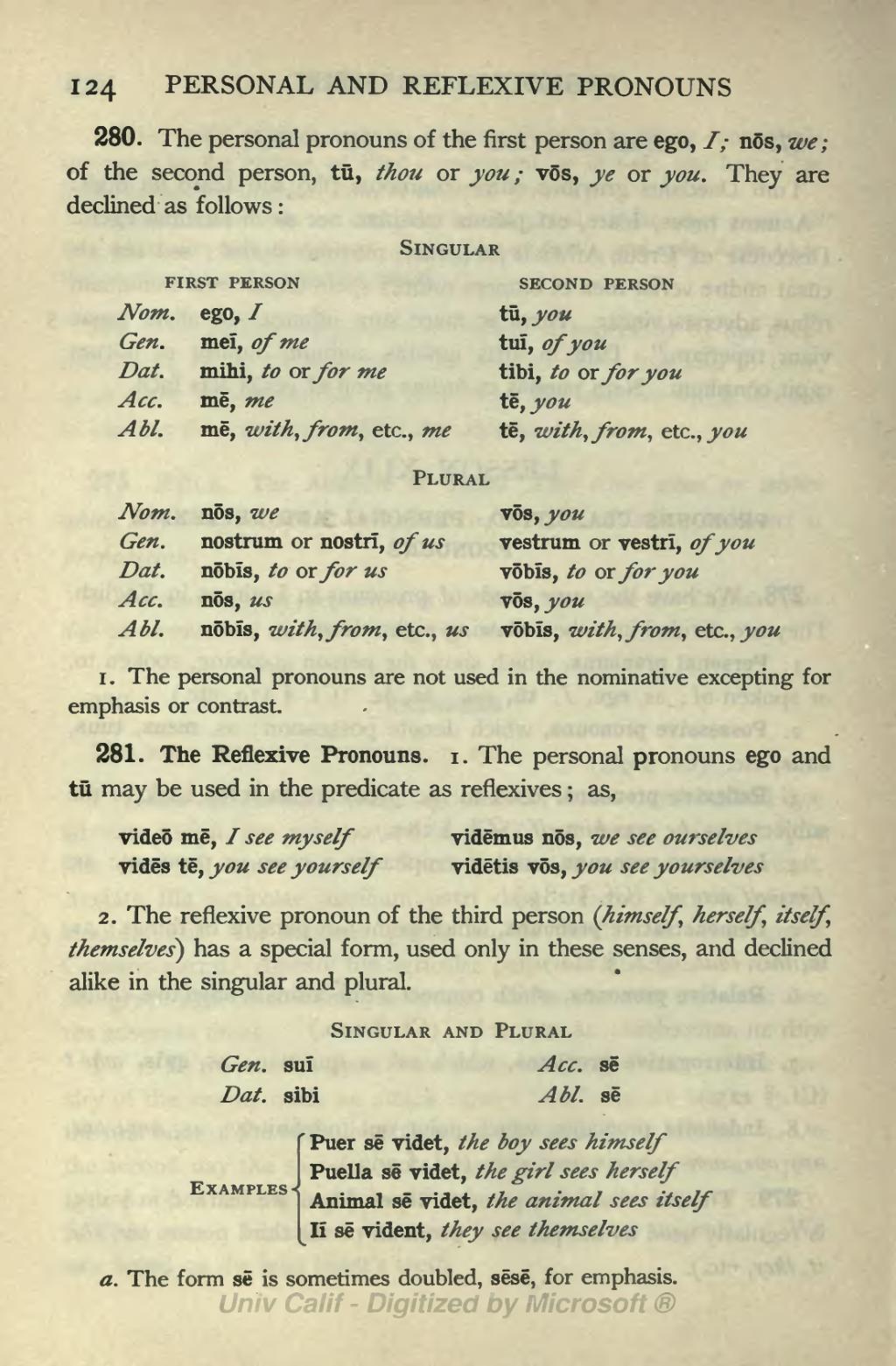There was a problem when proofreading this page.
124 PERSONAL AND REFLEXIVE PRONOUNS
280. The personal pronouns of the first person are ego, I; nōs, we; of the second person, tū, thou or you; vōs, ye or you. They are declined as follows:
| Singular | ||
|---|---|---|
| FIRST PERSON | SECOND PERSON | |
| Nom. | ego, I | tū, you |
| Gen. | meī, of me | tuī, of you |
| Dat. | mihi, to or for me | tibi, to or for you |
| Acc. | mē, me | tē, you |
| Abl. | mē, with, from, etc., me | tē, with, from, etc., you |
| Plural | ||
| Nom. | nōs, we | vōs, you |
| Gen. | nostrum or nostrī, of us | vestrum or vestrī, of you |
| Dat. | nōbīs, to or for us | vōbīs, to or for you |
| Acc. | nōs, us | vōs, you |
| Abl. | nōbīs, with, from, etc., us | vōbīs, with, from, etc., you |
- The personal pronouns are not used in the nominative excepting for
emphasis or contrast.
281.
The Reflexive Pronouns.
- The personal pronouns ego and
tū may be used in the predicate as reflexives; as,
| videō mē, I see myself | vidēmus nōs, we see ourselves |
| vidēs tē, you see yourself | vidētis vōs, you see yourselves |
2. The reflexive pronoun of the third person (himself, herself, itself, themselves) has a special form, used only in these senses, and declined alike in the singular and plural.
| Singular and Plural | |||
|---|---|---|---|
| Gen. | suī | Acc. | sē |
| Dat. | sibi | Abl. | sē |
| Examples |
Puer sē videt, the boy sees himself Puella sē videt, the girl sees herself Animal sē videt, the animal sees itself Iī sē vident, they see themselves |
a. The form sē is sometimes doubled, sēsē, for emphasis.
